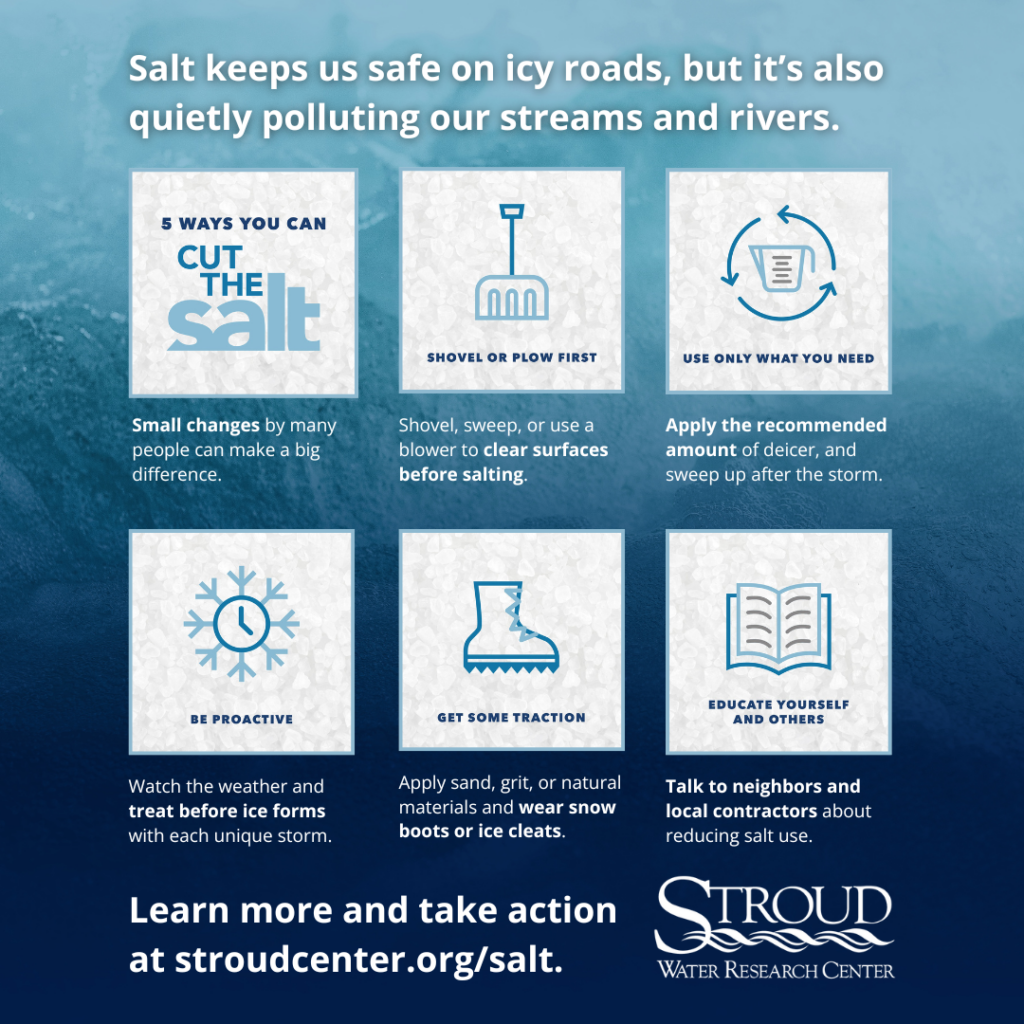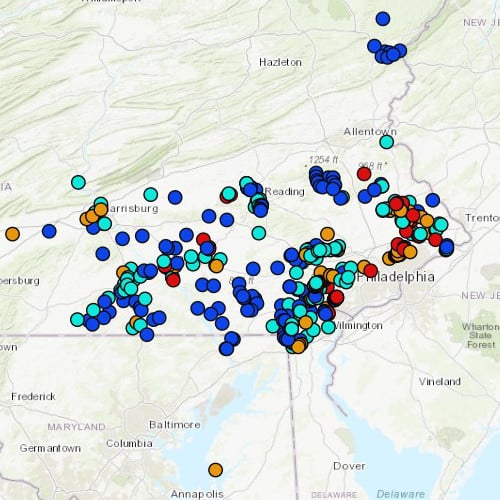
Concerned about road salt pollution? Take action! Request a free Freshwater Test Kit to sample your local waterway. Send us your data and we’ll add it to our salt map!

Registered Volunteers
Registered Sites
On January 30 [sampling window extended], dozens of organizations will host Salt Snapshot events. Join a snapshot or find an event that accepts sample drop-offs.
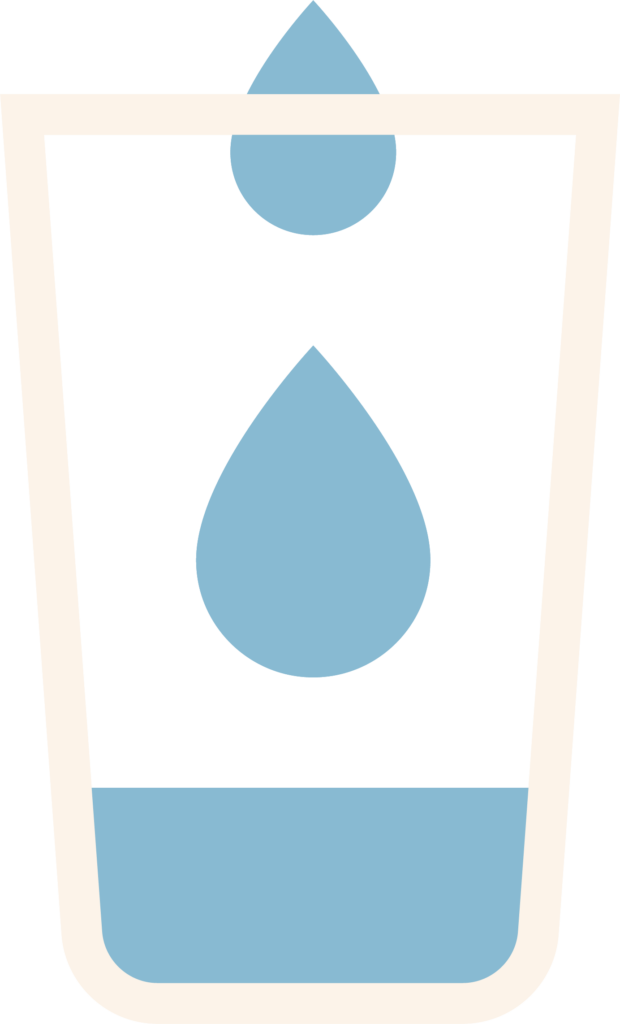

Salt Snapshot Map
Stroud Water Research Center has been coordinating salt snapshots with dozens of organizations in a multistate effort to sample streams and tell the story of road salt pollution. These findings highlight salt concentrations across various sites, providing valuable insights into the scope of salt pollution and guiding future action.
Road Salt Is Polluting Fresh Water
Salt keeps us safe on icy roads — but it’s also quietly harming waterways. Every winter, millions of tons of salt are spread on roads, sidewalks, and driveways to combat snow and ice.
While it’s effective at reducing slippery conditions, the consequences for freshwater ecosystems, infrastructure, and drinking water are profound, especially as winter salt use has risen dramatically over the past 50 years.
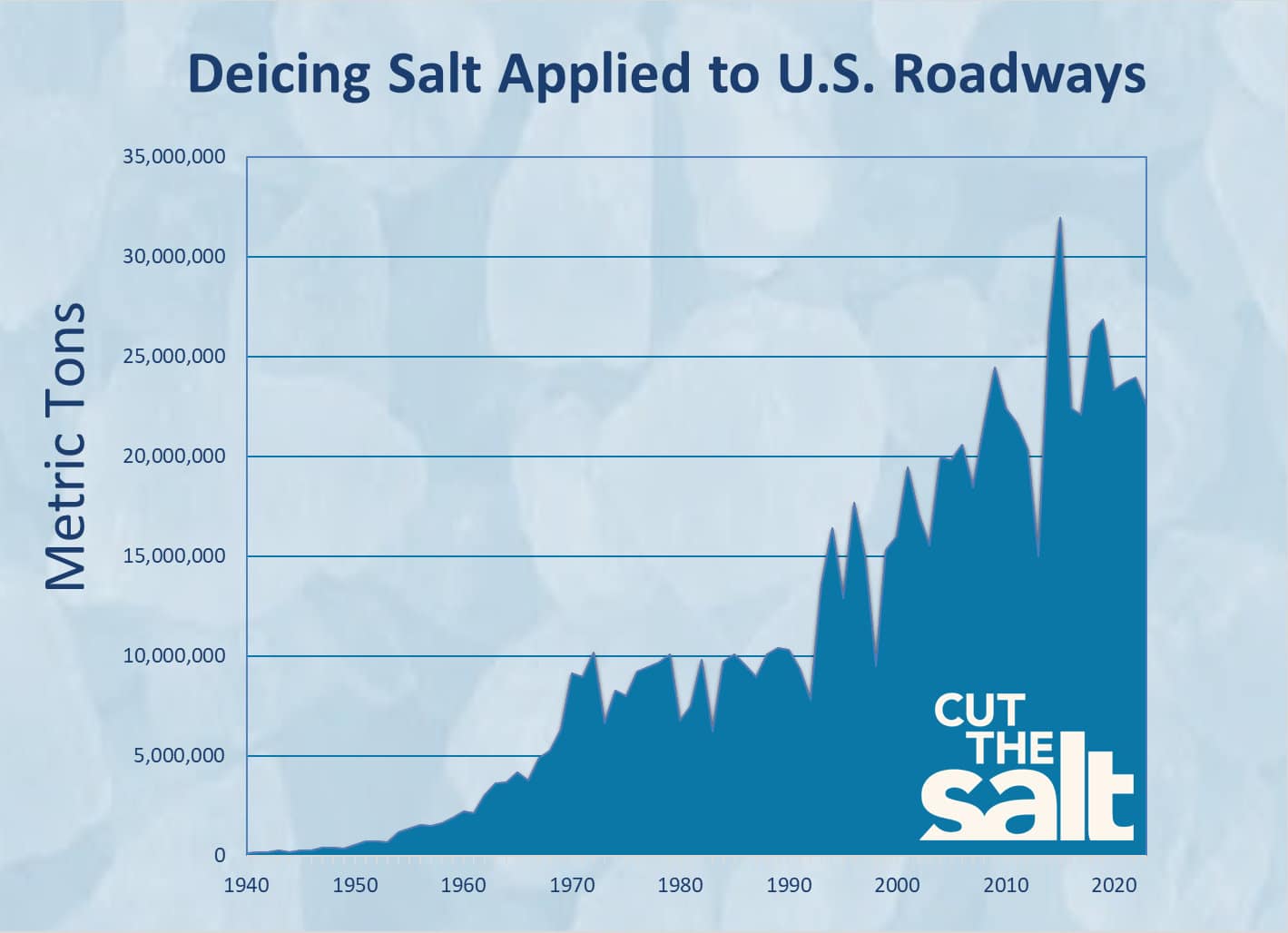
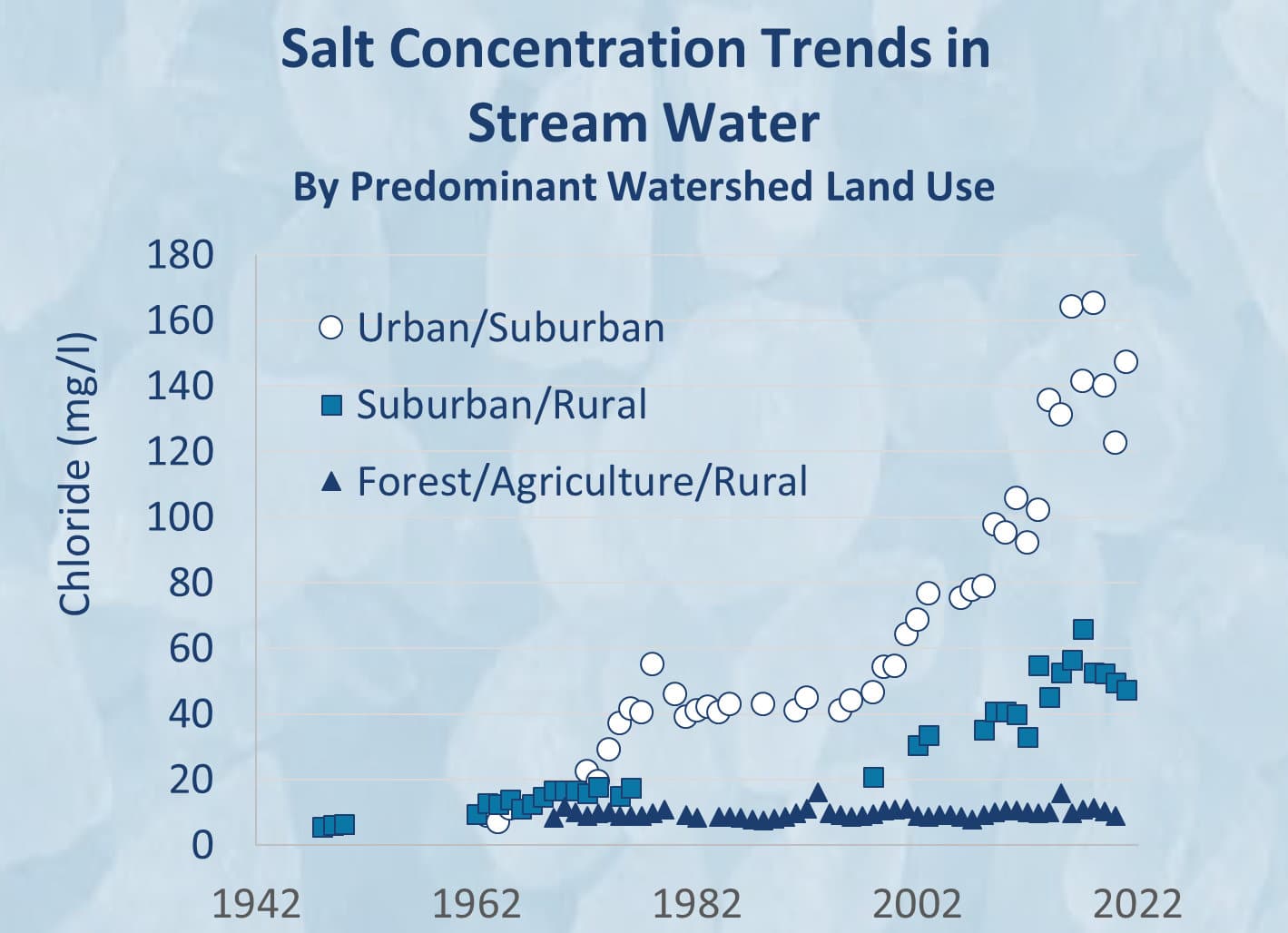
Why Is Winter Salt an Issue?
The Impact on Freshwater Ecosystems
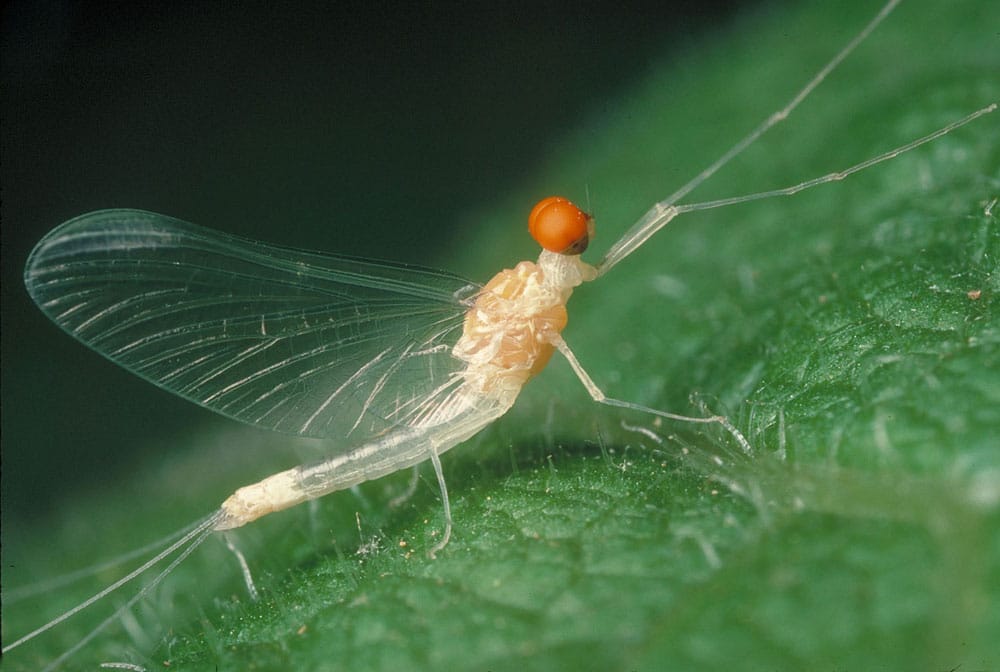
Winter salt runoff harms aquatic life, turning sections of some streams as salty as the ocean (see Figure 3). When salt levels rise in freshwater ecosystems, sensitive species, like mayflies and amphibians, can disappear. Even the chloride levels recommended by the U.S. Environmental Protection Agency (EPA) may not be enough to protect these vital species.

Salt and Drinking Water
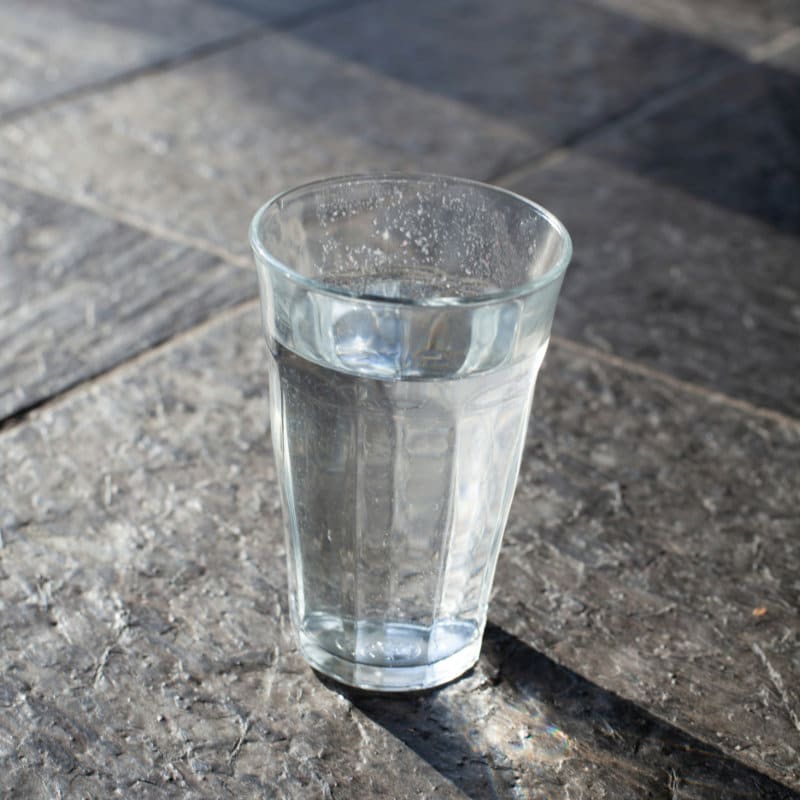
Salt also infiltrates groundwater and rivers, which supply most drinking water. Once contaminated, it’s costly and difficult to remove.
Water treatment facilities struggle to filter out salt, and advanced systems like reverse osmosis are expensive to install and maintain.
Protecting shared water sources is critical for both the environment and public health.
How Bad Is It? Rising Salt Levels in Fresh Water
Since 2016, Stroud Water Research Center has led efforts to monitor salt contamination, collaborating with hundreds of community scientists and volunteers. By measuring chloride and specific conductivity — key indicators of salt pollution — the Stroud Center and partners such as the Tookany-Tacony/Frankford Watershed Partnership have documented alarming levels of contamination in streams like Shoemaker Creek, Pennsylvania, which often exceed EPA safety thresholds (see Figure 4).

Data collected by community scientists and volunteers indicates an alarming trend: salt concentrations in many or most streams remain elevated year-round — even in summer. Worse yet, Stroud Center research shows salt is more toxic to aquatic life as temperature rises.
These findings highlight the urgent need to address winter salt use.
How You Can Help
By implementing best practices and new technologies, we can reduce salt use by 30 to 50 percent.
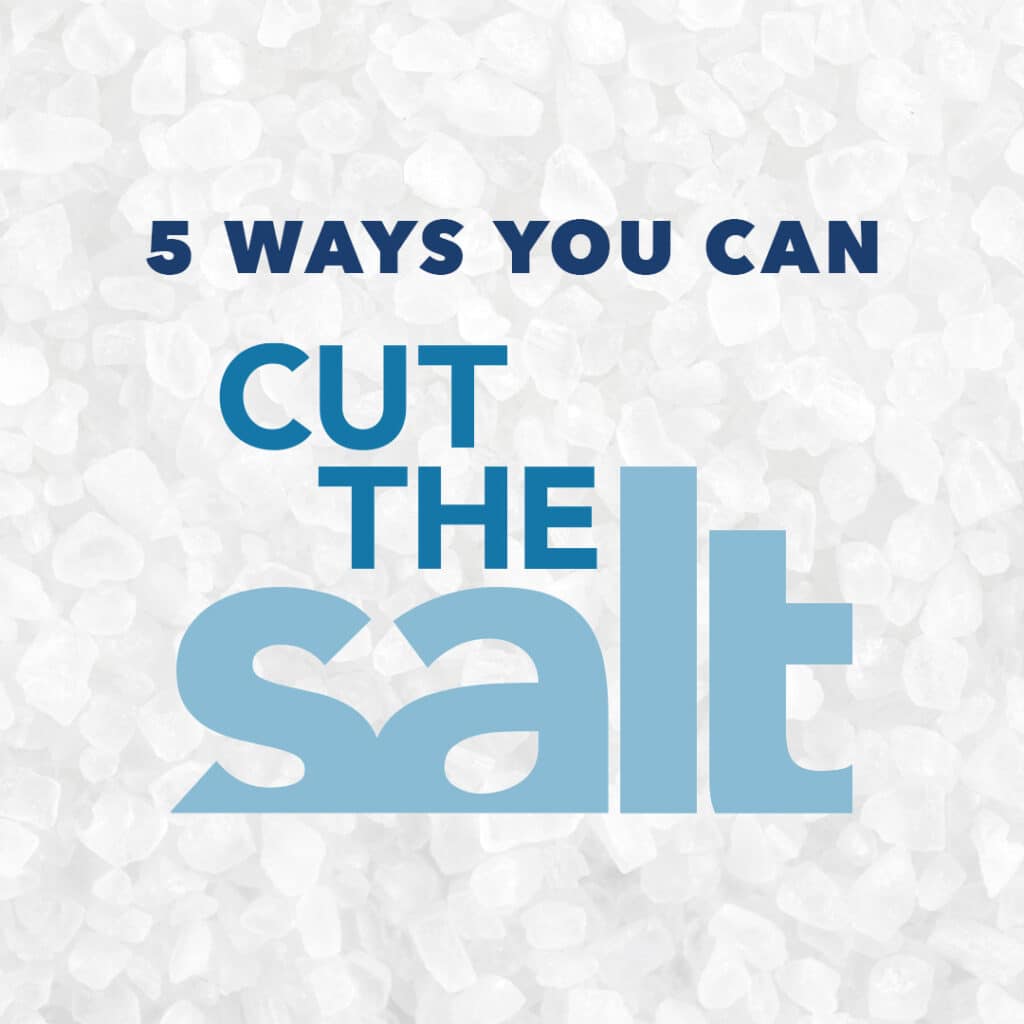
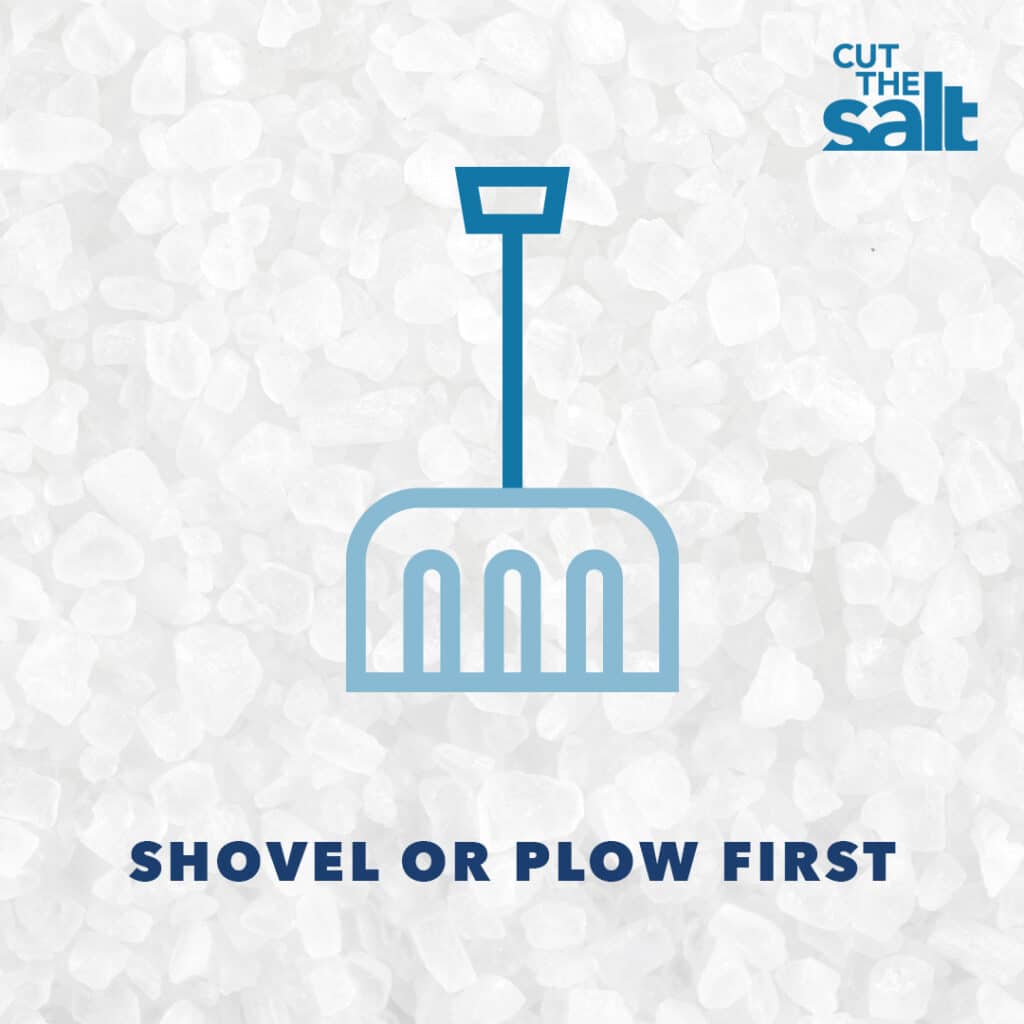
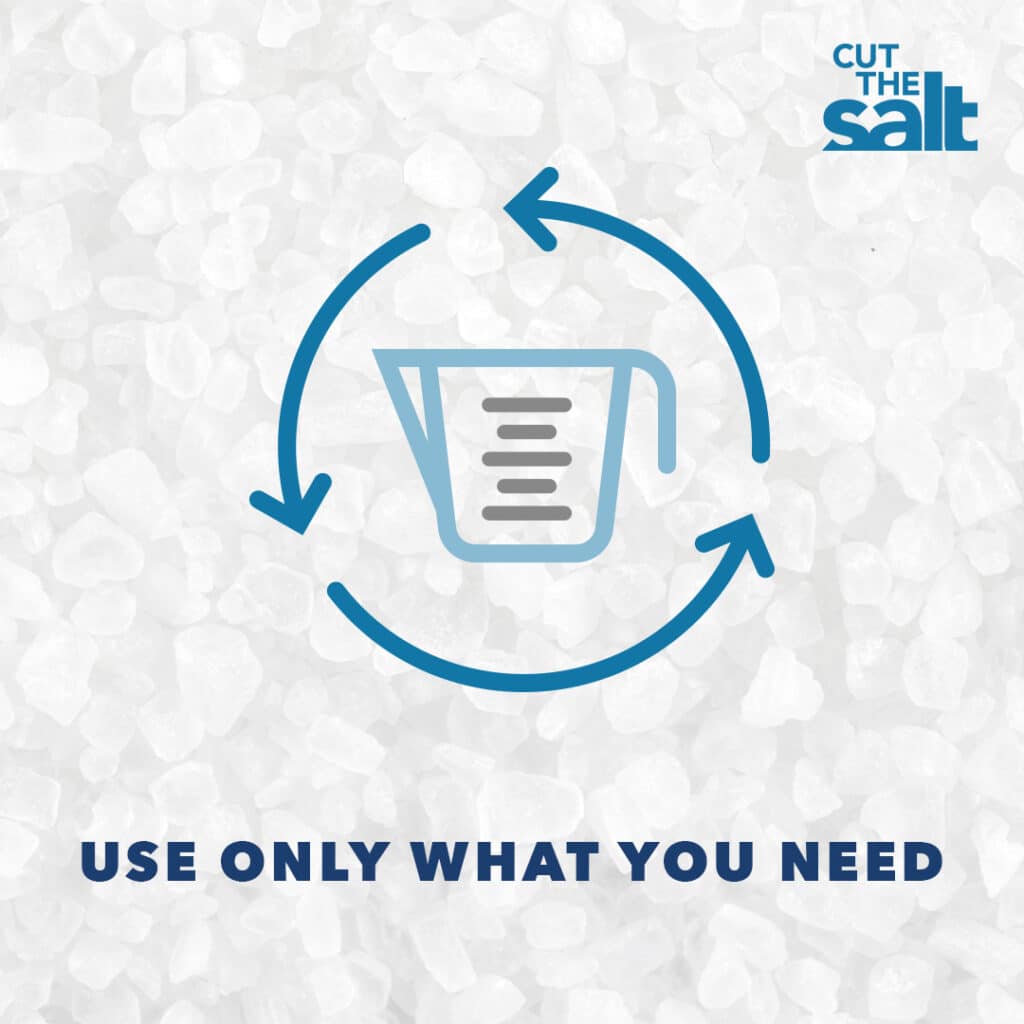
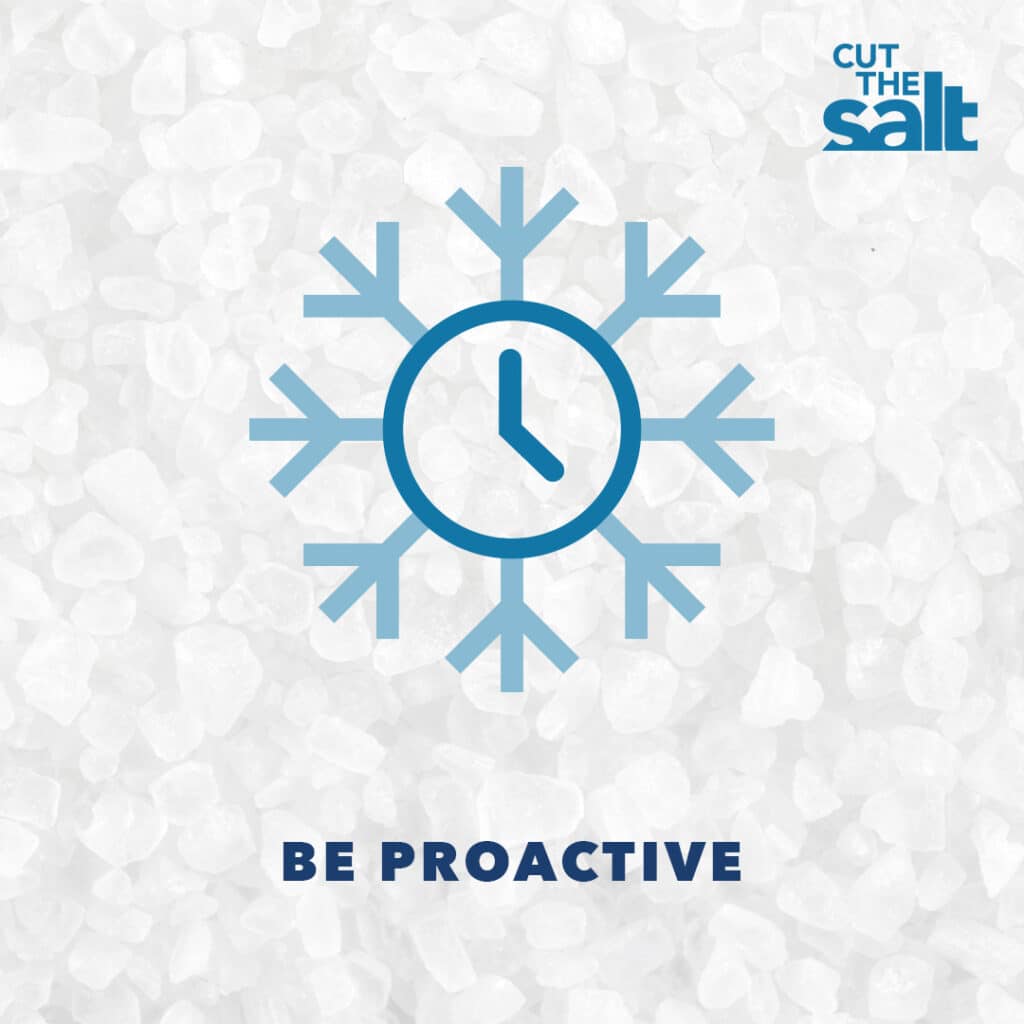
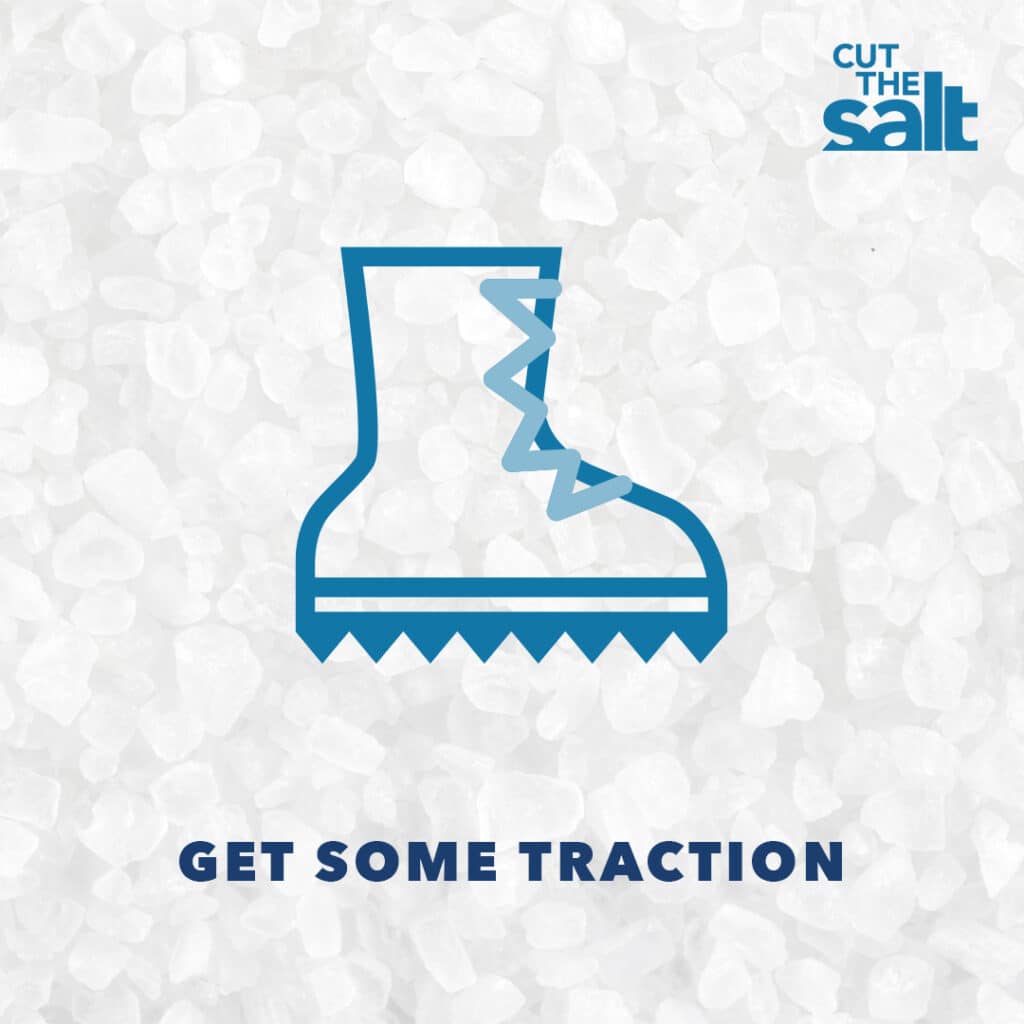
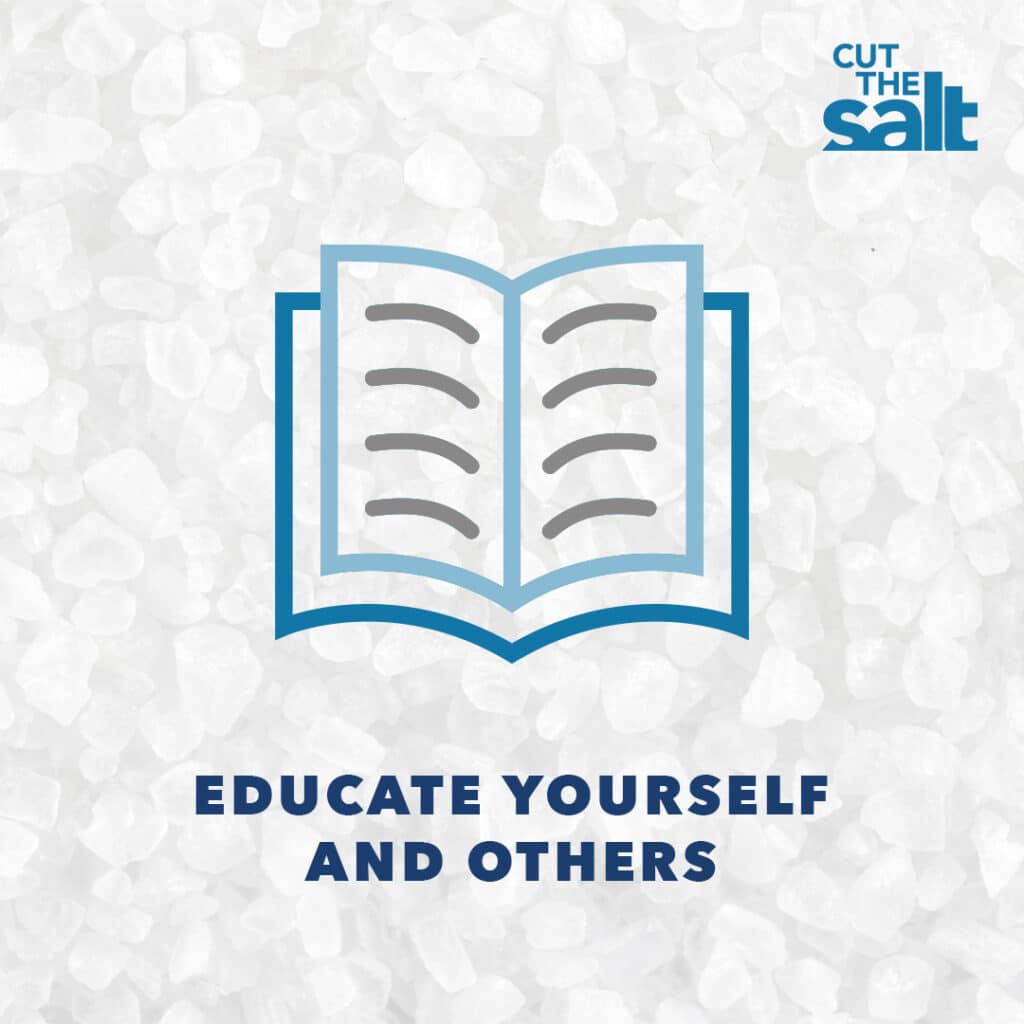
Share These Graphics
The “5 Ways to Cut the Salt” message is available in several formats for individuals and organizations to share with HOAs, local businesses, social networks, and more. Thanks for helping the Stroud Center spread the word!
Take Action
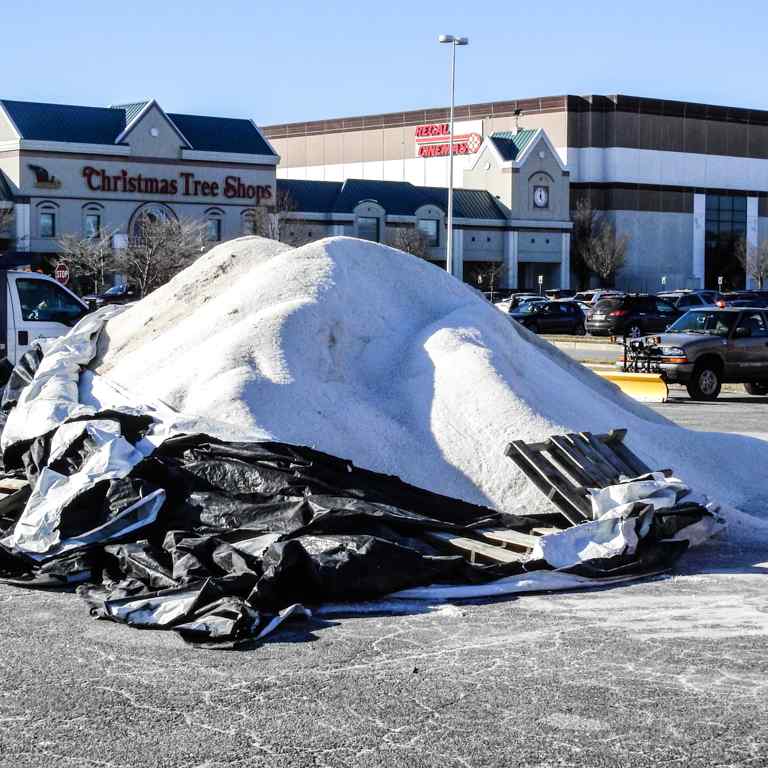
Want to make a difference? Spread the word to help protect fresh water from salt contamination.
Share what you’ve learned with your community. Carol Armstrong, Ph.D., a community science volunteer, reached out to local businesses and local and state agencies to address documented cases of improperly stored road salt, which can pollute nearby streams. She also convinced her township to start an environmental advisory council, offering to share what she’s learned.
Learn about tools for engaging with municipalities and the public on freshwater issues on Manage My Watershed, part of the Stroud Center’s WikiWatershed Toolkit.
Salt Pollution Events
Salt Snapshots
2025 Winter Salt Snapshot: In a January 2025 multistate effort to raise awareness about the harms of road salt, Stroud Water Research Center helped dozens of organizations in the mid-Atlantic region sample streams and tell the story of road salt in their communities. These findings highlight salt concentrations across various sites, providing valuable insights into the scope of salt pollution and guiding future action. Learn more in “Winter Salt Week Unites Those Concerned About Fresh Water.”
2025 Fall Salt Snapshot: In October 2025, Stroud Water Research Center partnered with nearly 100 organizations across the mid-Atlantic to sample streams during baseflow and reveal how road salt pollution persists year-round. The results show that salt persists and accumulates. Learn more in “Beyond the Snow.“
2026 Winter Salt Snapshot: In progress.
Road Salt News

Road salt impacts on soil properties and permanent nitrogen removal capacity of freshwater urban wetlands

Freshwater salinization syndrome is degrading streamwater quality in the National Capital Region national parks, USA
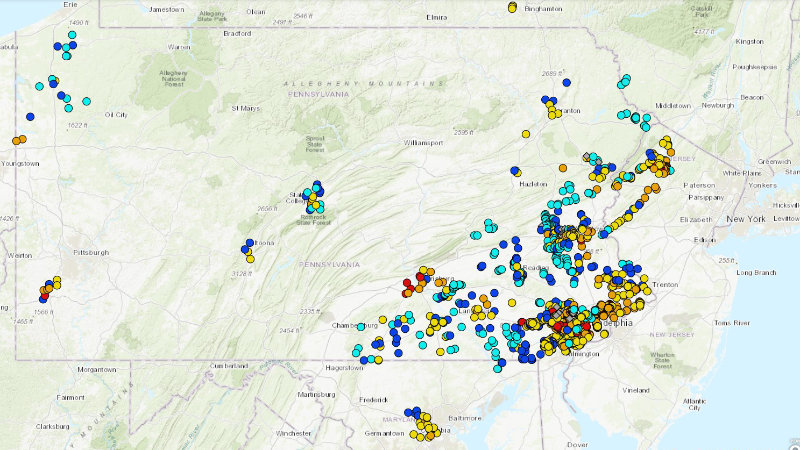
What the Fall Salt Snapshot Revealed About Our Groundwater
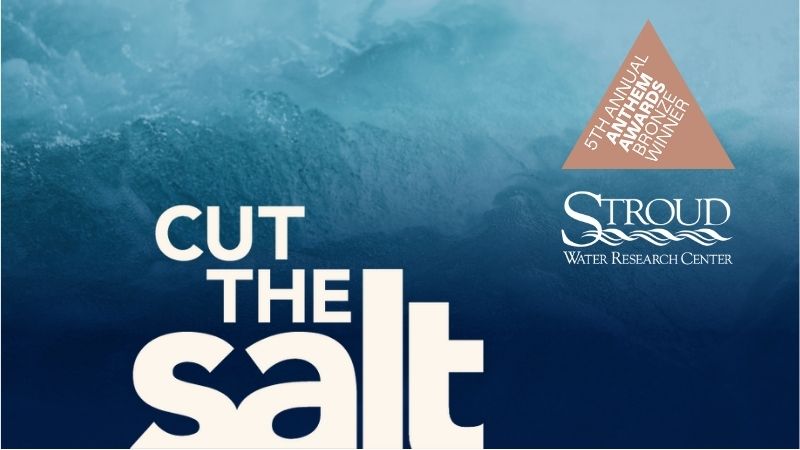
“Cut the Salt” Campaign Wins Anthem Award for Social Impact
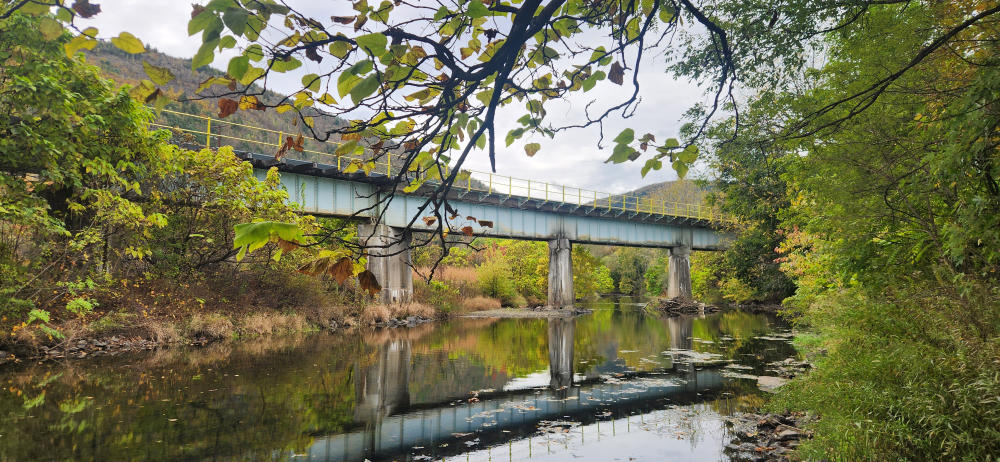
Beyond the Snow
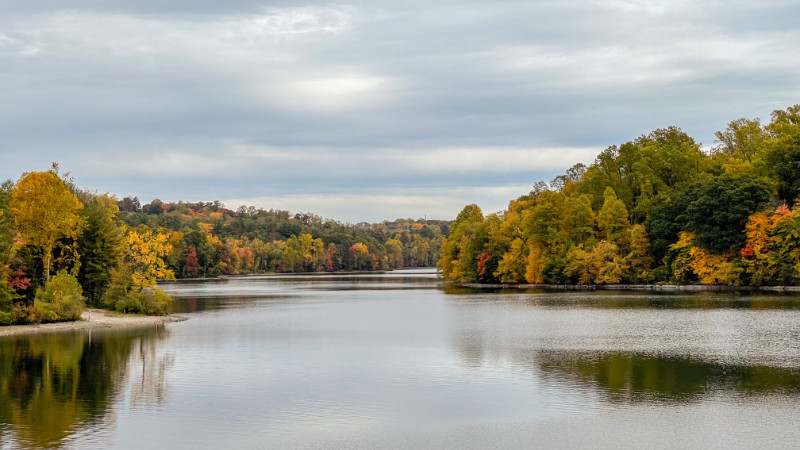
Salt Rising in N.Y.C. Source Water, New Report Echoes Stroud Center Study
Stay in Touch
Subscribe to UpStream Newsletter for monthly updates on freshwater research, tips for protecting waterways, and opportunities to support watershed restoration.
Support Science That Leads to Solutions
Stroud Water Research Center produces the trusted science needed for successful stream and river conservation. Your donation of any amount supports this crucial work.

